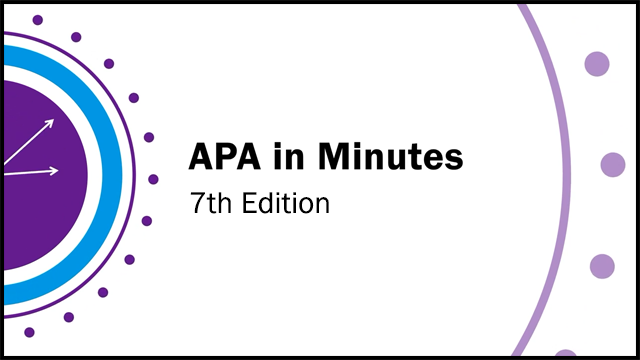Does writing a paper seem like an overwhelming task? Not sure where to start? Here are 5 easy steps to plan, research, and write your paper.
Step 1: Define your Topic
If you need to come up with your own research topic ... brainstorm. Get ideas from your textbook, a TV program, an article from a newspaper or magazine, or from surfing the web. The more interested you are in the topic, the more likely you are to do well on your paper. Remember to run your topic by your professor before investing a lot of time on research.
Perform preliminary research
Whether you choose your own topic or your professor assigns you one, perform preliminary research to help ensure that you have a good understanding of the subject matter. Become familiar with your topic by checking reliable, general sources like encyclopedias for facts, names, dates, concepts, and issues.
Create a clear thesis statement
Create a clear thesis statement ... not too narrow ... not too broad. If your topic is too narrow, you may not find enough information to support your paper. Make sure your topic is not too broad or else your paper will be merely informative. You can avoid this problem by developing a clear thesis statement or argument that will tell the reader the purpose of your paper.
Step 2: Identify Sources
Books
- Written by subject experts
- Contain bibliographies that can lead to other useful sources
- Use for: comprehensive coverage of a subject
Scholarly Journals
- Published four times a year and subject specific in content
- Articles written by subject experts for researchers and academics
- Articles are lengthy, have tables/graphs, and extensibe bibliographies
- Peer-Reviewed: articles are reviewed by experts in the field before being published
- Use for: the most current research in your field
Magazines
- Referred to as popular press since articles are written for the general public
- Published weekly or monthly
- Articles are short, have glossy photos and advertisements
- Use for: up-to-date coverage of events
Trade Publications
- Published by various industries and associations
- Contain articles and advertisements relating to a specific trade
- Use for: industry trends and contacts
Newspapers
- Published daily
- Provide local, national, and global news coverage
- Use for: awareness of current events
Encyclopedias
- Provide concise summaries of people, places, things, and events.
- Articles in encyclopedias often include useful bibliographies.
- Use for: topic overviews
Step 3: Find Sources
Use the Library's print collection and online resources since most assignments need academic sources. Even if your professor doesn't allow Internet/web sources, you can still use library online resources.
The best place to start your research is with the Page 1+ search which provides access to all library resources.
Why use Page 1+?
- Search for books, articles and more all from the same search box.
- Filter your results by content type, library location, subject terms or date.
- Easily limit your searches to show only full-text articles or peer-reviewed journals.
Searching with Page1+
Step 4: Evaluate Sources
These criteria questions will help you determine whether a source is suitable for your research.
Currency
- Print/Online: When was the book or article published?
- Print/Online: How recent are the references used?
- Internet: When was the information posted?
- Internet: Are there broken links?
Authority
- Who is the author/publisher/source/sponsor?
- Is the author qualified to write on the topic?
- Internet: Who maintains the site? Can you contact the site owner?
- Internet: Does the website link to other reputable sites?
Accuracy
- Is the information supported by evidence?
- Can you find other sources that verify the information?
- Does the language seem unbiased?
- Are there spelling or grammar errors?
Audience
- Who is the source written for? Academics, professionals, students, or the public?
- What is the purpose? To inform, sell, entertain or persuade the group?
- Is the information fact, opinion or propaganda?
- Internet: Are there targeted advertisements?
Step 5: Cite Sources
Use the Library's APA and MLA style tips and videosfor support on citing your sources.

